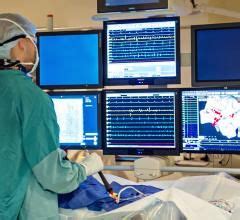The field of electrophysiology has revolutionized the diagnosis and treatment of heart rhythm disorders, and electrophysiology lab technicians play a vital role in this process. As the demand for skilled technicians continues to grow, it's essential to understand the responsibilities, requirements, and opportunities available in this career path.
What is an Electrophysiology Lab Technician?

An electrophysiology lab technician, also known as an EP lab technician, is a medical professional responsible for assisting cardiologists and electrophysiologists during procedures related to heart rhythm disorders. Their primary role is to ensure the smooth operation of the electrophysiology lab, prepare patients for procedures, and maintain accurate records.
Key Responsibilities of an Electrophysiology Lab Technician
- Prepare patients for electrophysiology procedures, including explaining the process and answering questions
- Assist physicians during procedures, such as implanting pacemakers or performing ablations
- Operate and maintain electrophysiology equipment, including recording and monitoring devices
- Maintain accurate records of patient data, including ECG and intracardiac electrogram recordings
- Clean and disinfect equipment and the lab area to prevent infection
- Collaborate with other medical professionals to ensure optimal patient care
Education and Training Requirements

To become an electrophysiology lab technician, you typically need to complete a post-secondary training program in cardiovascular technology or a related field. These programs are usually offered at community colleges or vocational schools and may lead to an associate's degree or certificate.
- Associate's degree or certificate in cardiovascular technology or a related field
- Completion of a training program in electrophysiology or cardiac rhythm device technology
- Basic life support (BLS) certification
- Certification in cardiovascular technology or a related field (optional but preferred)
Certification Options for Electrophysiology Lab Technicians
- Certified Cardiovascular Technician (CVT)
- Registered Cardiovascular Invasive Specialist (RCIS)
- Certified Electrophysiology Specialist (CEPS)
Skills and Qualities Required

To succeed as an electrophysiology lab technician, you'll need to possess a combination of technical, communication, and interpersonal skills.
- Strong understanding of electrophysiology principles and procedures
- Ability to operate and maintain complex medical equipment
- Excellent communication and interpersonal skills
- Ability to work well under pressure and in a fast-paced environment
- Compassion and empathy when interacting with patients
- Attention to detail and ability to maintain accurate records
Salary and Job Outlook

The salary for electrophysiology lab technicians can vary depending on factors such as location, experience, and employer. However, according to the Bureau of Labor Statistics (BLS), the median annual salary for cardiovascular technologists and technicians was around $60,000 in May 2020.
- Median annual salary: around $60,000
- Job growth prospects: 14% growth expected from 2020 to 2030 (faster than average)
Advancement Opportunities

With experience and additional education, electrophysiology lab technicians can advance to leadership positions or pursue specialized roles.
- Lead technician or supervisor
- Electrophysiology specialist
- Device representative
- Educator or instructor
- Research assistant
Conclusion
A career as an electrophysiology lab technician can be a rewarding and challenging choice for those interested in cardiovascular technology. With the right education, training, and skills, you can succeed in this field and make a positive impact on patient care.
We hope this comprehensive guide has provided you with valuable insights into the world of electrophysiology lab technicians. If you have any questions or comments, please feel free to share them below.






What is the primary role of an electrophysiology lab technician?
+The primary role of an electrophysiology lab technician is to assist cardiologists and electrophysiologists during procedures related to heart rhythm disorders.
What education and training are required to become an electrophysiology lab technician?
+To become an electrophysiology lab technician, you typically need to complete a post-secondary training program in cardiovascular technology or a related field.
What is the median annual salary for electrophysiology lab technicians?
+The median annual salary for cardiovascular technologists and technicians, including electrophysiology lab technicians, was around $60,000 in May 2020.
